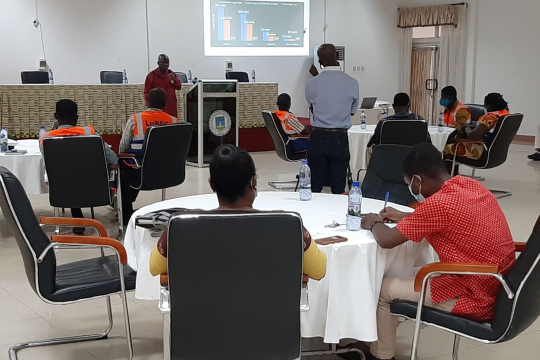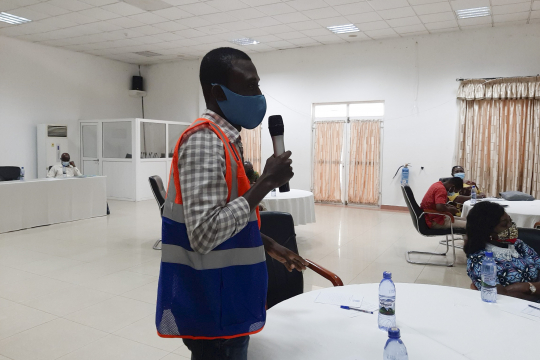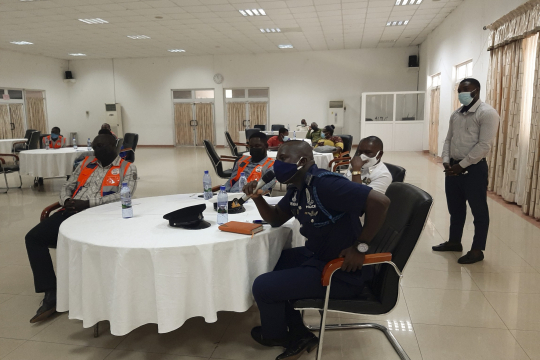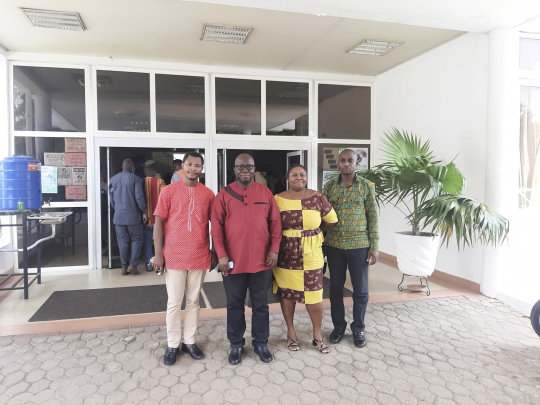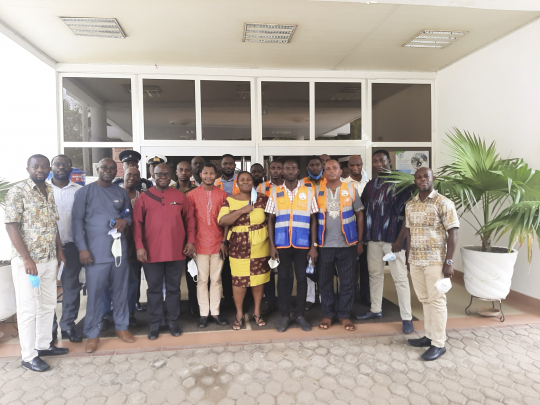ENRRI-EfD Ghana invited fisheries regulations enforcement officials and media representatives to a round table discussion on enforcement of fishing regulations and promoting sustainable fisheries management in Ghana. The meeting was held on 9th March 2021 at the Ghana Institute of Management and Public Administration (GIMPA), Accra.
The aim of the meeting was to increase awareness of the threats to the sustainability of fisheries resources and solicit views on better ways forward. It also provided an opportunity to forge and deepen collaborations critical for the pursuit of a sustainable fisheries sector.
“Business as usual will collapse the sea”
ENRRI Director Professor Wisdom Akpalu noted that the sector was too important to ignore: it employs 20% of the labor force and contributes 15% to the total annual agricultural output, alongside the nutritional benefits it provides. Unlike the mining sector, the fisheries sector is renewable and has the potential to benefit the nation and its people for generations to come, if managed well.
However, the sector remains fraught with problems -- including over-capitalization, saiko (the practice whereby fish considered unwanted by industrial trawlers are passed on [transshipped] to canoe operators at sea), use of illegal fishing gears, coupled with limited enforcement of fisheries regulations and apparent lack of resolute action on the part of officials -- which are gradually putting fisheries resources on the brink of a total collapse.
“Business as usual will collapse the sea,” Prof Akpalu warned, as he made a passionate call for renewed commitment and concerted action to protect and safeguard this precious resource.
Fear of repercussions
Sharing their views and experiences on the obstacles preventing the effective enforcement and implementation of fishing laws and regulations, participants cited interference from superiors and fear of victimization for enforcing regulations, among others.
There was common agreement on the need for greater collaboration on all fronts, notably between academia and the media, harnessing their respective strengths in research, and public education and awareness creation.
Participants also highlighted the need for a campaign to inform the public on the vital contribution of the fisheries sector towards the economic and social wellbeing of Ghana, as well as to debunk unhelpful long-held notions (suggesting the sea can never dry) in order to elicit broad support and action towards the sustainable use of fisheries resources.
Ultimately, though, success largely hinges on the professionalism and genuine concern and commitment of public sector offices and officials who have been mandated with stewardship of the fisheries sector.
The event received extensive coverage in print and online media. Selected online reports are below.
More photos from the event:
